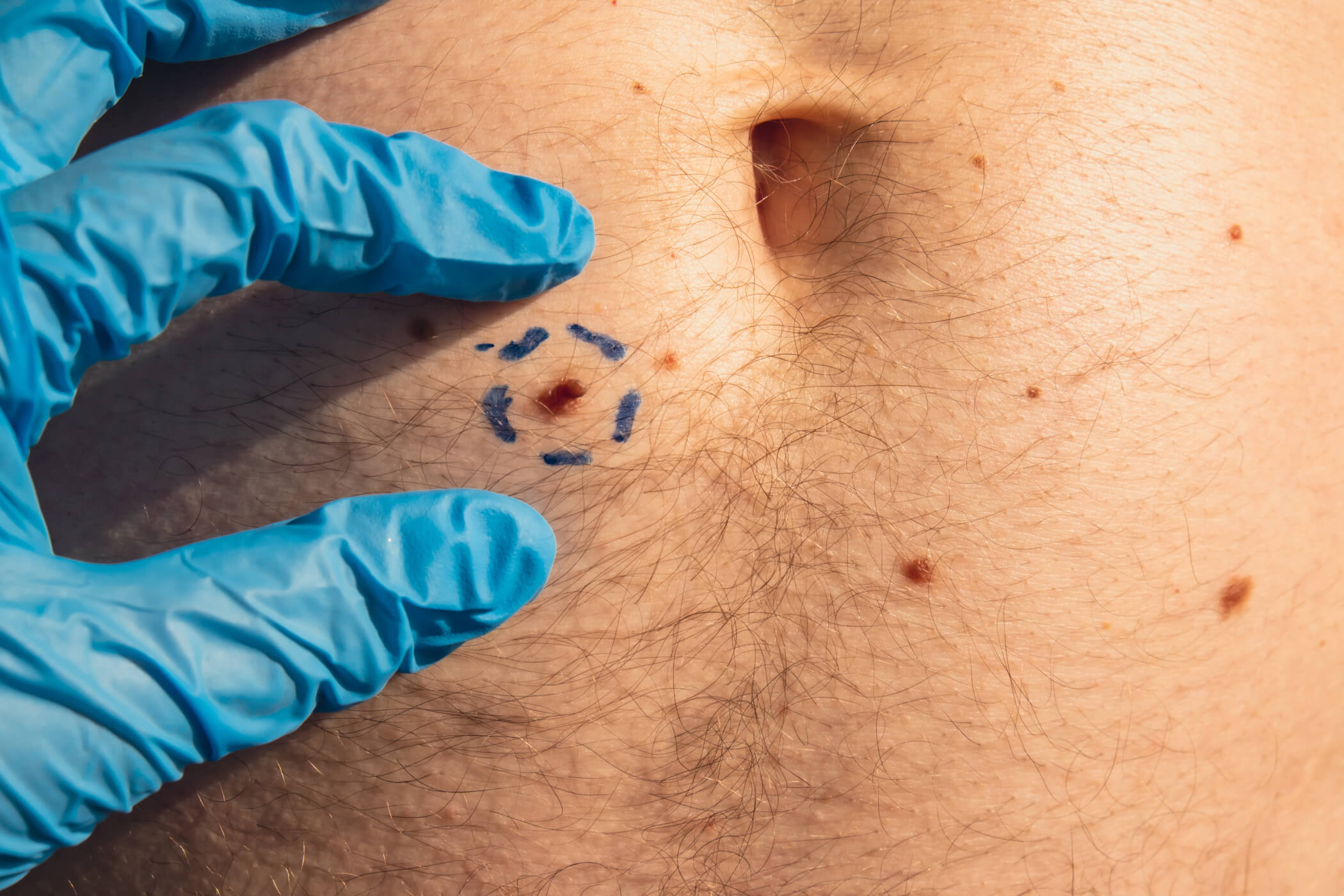ADHD is the most common neurodevelopmental disorder in the world, with around 2.6 million people estimated to have it in the UK alone. While these numbers are already huge, they are rapidly growing. Research shows there has been a significant rise in ADHD diagnoses in the UK, with a staggering seven-fold increase in adult ADHD prescriptions in the last 10 years.
Despite these statistics, many people go large parts of their life without an ADHD diagnosis. This can mean years of struggling with symptoms that could be managed effectively with proper support and treatment. The good news is that getting diagnosed has never been more accessible, and understanding the process is the first step towards getting the help you need.
In this article, our experienced private doctors in Milton Keynes will explain how to get diagnosed with ADHD in the UK, covering everything from recognising symptoms to understanding your assessment options. If you suspect you might have ADHD, we encourage you to arrange your ADHD assessment in Milton Keynes with Private Doctors MK to get the answers and support you deserve.
How To Get Diagnosed With ADHD In The UK
An official ADHD diagnosis can be life-changing for those who have lived with the disorder their whole life. It provides validation, explains years of challenges, and opens the door to effective treatments and support strategies. Getting diagnosed also means access to workplace accommodations, educational support, and medications that can significantly improve daily functioning.
Understanding the diagnostic process is crucial because ADHD affects everyone differently, and the journey to diagnosis can vary depending on your age, circumstances, and chosen assessment route. This comprehensive guide will walk you through everything you need to know about getting an ADHD diagnosis in the UK.
- What Is ADHD?
- How Do You Know If You Have ADHD?
- How To Get An ADHD Assessment In The UK
- Who Can Assess ADHD In The UK?
- How To Test For ADHD
- What Happens After An ADHD Assessment?

What Is ADHD?
ADHD stands for Attention Deficit Hyperactivity Disorder. It is a neurodevelopmental condition that affects how the brain develops and functions, particularly in areas responsible for attention, impulse control, and activity levels. ADHD is not a character flaw, lack of willpower, or result of poor parenting – it is a genuine medical condition with clear biological foundations.
ADHD exists on a spectrum, which means symptoms can manifest in very different ways from person to person. Some people primarily struggle with attention and focus, while others are mainly affected by hyperactivity and impulsiveness. Many people experience a combination of both types of symptoms. The condition also changes as an individual ages, so the symptoms someone experiences as a child might be quite different from those they have as an adult.
For example, a hyperactive child who cannot sit still in class might become an adult who feels constantly restless but has learned to manage their fidgeting. Similarly, a child who daydreams frequently might grow into an adult who struggles to concentrate during long meetings or when reading detailed documents.
What Is The ICD-11?
The ICD-11 is the International Statistical Classification of Diseases and Related Health Problems. It is the official system used by healthcare professionals worldwide to define and categorise health problems and disorders. The ICD-11 provides the official definition of ADHD and sets out the diagnostic requirements that specialists must follow when assessing patients.
According to the ICD-11, the essential features for an ADHD diagnosis are:
“A persistent pattern (e.g., at least 6 months) of inattention symptoms and/or a combination of hyperactivity and impulsivity symptoms that is outside the limits of normal variation expected for age and level of intellectual development. Symptoms vary according to chronological age and disorder severity.”
This definition emphasises that ADHD symptoms must be persistent, significantly impact daily life, and be inappropriate for someone’s age and development level. It also acknowledges that symptoms can change over time and vary in severity.

How Do You Know If You Have ADHD?
Identifying ADHD in yourself can be extremely difficult, which is part of the reason the number of people living with the condition is likely much higher than those who have been officially diagnosed. Many adults with ADHD have spent years thinking they are lazy, disorganised, or simply “not good enough” at certain tasks, not realising that their struggles stem from a neurodevelopmental condition.
ADHD symptoms often overlap with everyday challenges that everyone faces from time to time. The key difference is that for people with ADHD, these difficulties are persistent, severe, and significantly impact multiple areas of their life. Here are some of the most common ADHD symptoms to watch for:
- Easily Distracted: Your mind wanders during conversations or while reading. Small noises that others barely notice can completely derail your concentration, and you may start tasks but struggle to finish them.
- Difficulty Managing Time: You consistently underestimate how long tasks will take and frequently run late despite your best efforts.
- Difficulty Following Instructions And Finishing Tasks: Multi-step instructions feel overwhelming, and you might lose track halfway through. You start many projects enthusiastically but struggle to see them through to completion.
- Losing Things Often: Your keys, phone, wallet, or important belongings seem to have a habit of disappearing. You spend significant time each day searching for misplaced items.
- Lots Of Energy And A Restless Feeling: You feel like you have a battery inside that never switches off. This might show as physical restlessness, fidgeting, or an internal feeling of being “on the go.”
- Very Talkative: You talk more than others, interrupt conversations, or struggle to wait your turn in discussions. You may realise you have dominated conversations and worry about it afterwards.
- Impulsive Decision Making: You make quick decisions without fully thinking through the consequences or make purchases you later regret.

How To Get An ADHD Assessment In The UK
There are several ways to get an ADHD assessment in the UK, each with different advantages and considerations. Understanding your options will help you choose the path that best suits your needs, timeline, and circumstances.
NHS Assessment
The traditional NHS route involves speaking to your GP and explaining why you think you might have ADHD. Your doctor will likely ask you detailed questions about your symptoms and how they affect your daily life. They might ask you to complete a screening tool called an ‘ASRS form’, which helps identify potential ADHD symptoms.
Once your GP agrees that an assessment is warranted, they can refer you to a specialist service, and you will be placed on the NHS waiting list. While this option is free, waiting times can be extremely long – often 12 to 18 months or more in many areas of the UK.
NHS Assessment Via ‘Right To Choose’
If you are based in England under the NHS, you now have a legal right to choose your mental healthcare provider and your choice of mental healthcare team. This important right means that, for instance, should you decide the waiting time for your ADHD assessment is too long, then you can choose another provider.
The Right to Choose scheme allows you to select from a list of approved private providers who work with the NHS. This can significantly reduce waiting times while still accessing NHS-funded care. However, not all areas have participating providers, and you will still need a GP referral to access this option.
Private Assessment
Private assessment offers the most flexibility and shortest waiting times. When you choose private healthcare, you can skip the lengthy NHS waiting lists entirely and will not need to justify the need for an assessment to a GP first. You can typically book an appointment within days or weeks rather than months.
Private assessments also often provide more comprehensive evaluations, longer appointment times, and more detailed reports. Many private providers offer evening and weekend appointments to fit around work and family commitments. At Private Doctors MK, our experienced specialists understand the impact that waiting for answers can have on your life, which is why we prioritise timely, thorough assessments in a comfortable, supportive environment.

Who Can Assess ADHD In The UK?
Understanding who is qualified to diagnose ADHD is important when choosing your assessment provider. In the UK, only certain healthcare professionals have the training and authority to provide formal ADHD diagnoses.
If you are an adult in the UK, the only people who can formally assess you for ADHD are:
- A Psychiatrist: A medical doctor who has specialised in psychiatry and mental health conditions. Psychiatrists have extensive training in neurodevelopmental disorders and are qualified to prescribe ADHD medication if needed.
- A Specialist ADHD Nurse: A qualified nurse who has completed additional accreditation and training specifically in assessing ADHD. Depending on their qualifications and prescribing rights, they may also be able to prescribe ADHD medication.
- A Psychologist: Clinical or educational psychologists can assess someone for ADHD using standardised tests and clinical interviews. However, psychologists are not medical doctors and, therefore, cannot prescribe medication. If medication is recommended, you would need to see a psychiatrist or specialist nurse.
It is important to note that GPs and other mental health professionals, such as counsellors, cannot provide a formal diagnosis of ADHD, although they can refer you for assessment and provide ongoing support once you have a diagnosis.

How To Test For ADHD
An ADHD assessment is not a simple test that you can pass or fail. Instead, it involves a comprehensive evaluation of your background, behaviour patterns, and how symptoms impact your daily life.
Your ADHD assessment is likely to follow a structure similar to this:
- Interview: A detailed discussion with a specialist about your symptom history, when they first appeared, and their impact on your daily life, work, relationships, and education. They will also review your medical and mental health history.
- Observation: The specialist will observe your behaviour and may conduct standardised tests to assess your attention, memory, and functioning.
- Other Perspectives: For children and sometimes adults, the specialist may gather information from family members, teachers, or partners through questionnaires to understand your behaviour from different viewpoints.
- Diagnosis: The specialist reviews all information against the ICD-11 diagnostic criteria, considering whether your symptoms are persistent and significantly impactful. They will then discuss their findings and explain whether you meet the criteria for an ADHD diagnosis.

What Happens After An ADHD Assessment?
Following your ADHD assessment, the specialist will discuss the results with you and, if appropriate, your family. This conversation will cover whether you meet the diagnostic criteria for ADHD and what this means for your future care and support.
If you receive an ADHD diagnosis, your specialist will work with you to develop a treatment plan tailored to your specific needs and circumstances. This might include medication to help manage symptoms, particularly if you are struggling with concentration, hyperactivity, or impulsiveness. ADHD medications can be highly effective in reducing symptoms and improving daily functioning.
Your treatment plan might also include therapy or counselling to help you develop coping strategies and address any emotional impact of living with undiagnosed ADHD. Cognitive behavioural therapy, in particular, can be very helpful for developing practical skills for managing time, organisation, and relationships.
The specialist will also discuss practical management techniques and lifestyle changes that can support your wellbeing. This might include advice on sleep routines, exercise, workplace adjustments, or educational support if you are studying.

Get An ADHD Assessment At Private Doctors MK
If you recognise yourself in the symptoms described in this article, getting a professional assessment could be the first step towards understanding and managing your challenges more effectively. Living with undiagnosed ADHD can impact every area of your life, from relationships and career prospects to self-esteem and mental health.
At Private Doctors MK, we’re a private GP in Milton Keynes that understands how important it is to get timely, accurate answers about your mental health. We provide comprehensive ADHD assessments in a comfortable, supportive environment without long waiting times. Contact us today to arrange your ADHD assessment in Milton Keynes and take the first step towards getting the answers and support you deserve.




